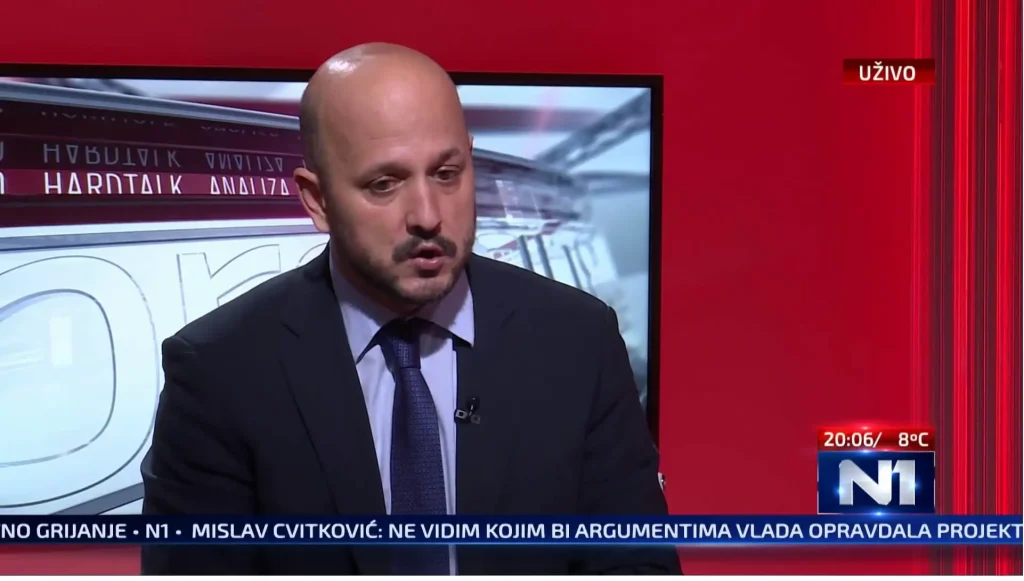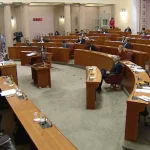Croats often discuss politics, whether on social media or in bars over coffee or something stronger. As such, one could say they love politics but despise politicians.
If you regularly read TCN’s political section, you can see why. Numerous instances of corruption among political elites or an inadequate bureaucratic system are just the tip of the iceberg. Add-in politicians (for a year, most notably President Zoran Milanović and Prime minister Andrej Plenković) spending more time insulting each other than dealing with the many problems Croatian people have, and you can really understand the constant trash-talking about politicians that Croats almost constantly do.
Some Croatian politicians, such as the late Zagreb Mayor Milan Bandić, despite heavy criticism, remain in power till the end of their lives. In contrast, others, such as former Prime Minister Jadranka Kosor, eventually retire from politics (and then spend time writing for TCN, no less).
One such politician who recently said goodbye to politics is Gordan Maras.
Many Croatian media outlets, such as Dnevnik.hr reported on Maras’s social media post that his 20-year-old long political career doesn’t mean the end of his working days.
After briefly being unemployed, Gordan Maras came with a business plan and became an entrepreneur. More precisely, he will be a consultant for European Funds, as well as a project financing advisor. Basically, if you have an idea to start a business, but you don’t know how to start it, Maras is now the guy to talk to.
”I feel full of energy, thirsty to work and aware that I have a fresh start in front of me and I’ll do everything I can to use this opportunity,” Maras said, as noted by Dnevnik.hr
In general, apart from receiving edgy humour and cynicism at your expense from the public, the end of a political career may not be so bad after all. If your political endeavor brought you to parliamentary level politics, you’re in line to receive a parliamentary pension. As Mirovina.hr writes, a parliamentary pension is 10,077 kuna, allowing for a more than pleasant life.
”If an MP has held office for three consecutive years, in each term longer than half, he may retire with 15 years of service. His pension is 55 percent of his base salary (parliamentary net salary), increased by two percent per year of service,” informs Mirovina.hr when stating the conditions you need to satisfy for a Croatian parliamentary pension.
Gordan Maras, having been an MP from 2007 and economy minister from 2011 to 2016, certainly has the right to this luxurious pension. Not to mention the fact that his last job was being the head of Zagreb’s local SDP branch.
Maras stated how ”a parliamentary pension was never an option” and despite corruption scandals he was allegedly involved in, that is a praiseworthy decision on his part. But the downside is that he still received state aid for his new private business adventure. Let’s just hope he will pay his taxes.
Gordan Maras’s career change is followed by the tensions in the Croatian Socialdemocratic party (SDP) after new party president Peđa Grbin removed Maras and three other (in)famous party members: Rajko Ostojić, Zvane Brumnić, and Nikša Vukas. As TCN reported, this decision caused an unbelievable tremble within SDP, the second biggest political force in all of Croatia.
Despite the current president Zoran Milanović (who is also the former prime minister and the head of the government which had Maras as a minister) starting his career in SDP, the party hasn’t won any parliamentary elections since 2015. Grbin hoped to improve SDP’s rating by removing those associated with ”less than top quality” political work (or alleged criminal affairs) in the past from the party. He also believes these individuals are the result of less than satisfactory election results with Rijeka being the only big city an with SDP mayor.
With Maras now retired, new faces came to the parliament. From the green-left Možemo! Party (currently ruling Zagreb) or the Centre-party Fokus (who earned their name in handling Sveta Nedelja ) to conservative star Marin Miletić from the Most party. With new names for every political preference, there may be a glimmer of hope that these new names will work honorably and convince Croats that politicians aren’t so bad after all. Who knows, maybe the millionth time’s a charm?
Learn more about Croatian politics and history from the 1990s on our TC page.
For more news from SDP Croatia, follow TCN’s dedicated page.












